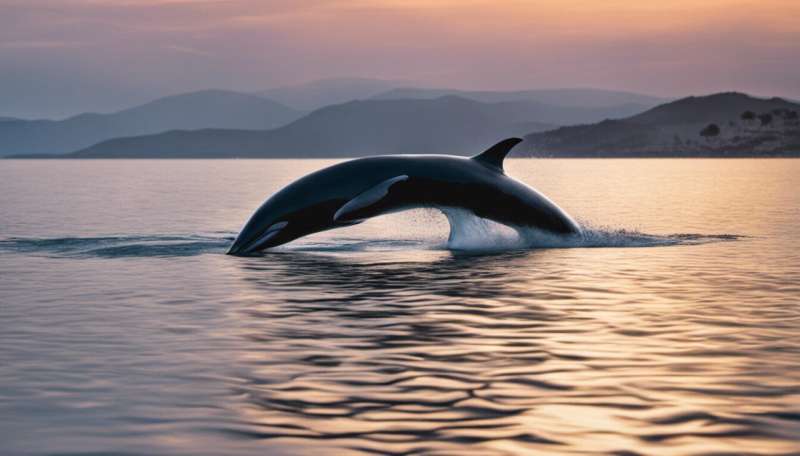Researchers identify hybrid pilot whale off Spanish coast

A European project has recorded the first ever documented hybridisation - offspring resulting from cross-breeding - between species of cetaceans, an order of marine mammals that include whales, dolphins and porpoises. The discovery could further our understanding of these mammals' habits and behaviour, and whether their living patterns and migratory instincts are changing.
With the help of funding from the Severo Ochoa Programme, researchers were able to confirm the existence of fertile offspring of common pilot whales and tropical pilot whales. The team are currently trying to determine the origin of the hybridisation between both species of pilot whales, and to identify their geographical range.
Pilot whales are average-sized cetaceans that appear relatively frequently along Europe's coastline. The common pilot whale typically lives in the cold waters off northern Europe, while the tropical pilot whale lives in the warmer waters surrounding northern Africa.
One of the few places that these two species meet is off the Spanish coast, where the cold north Atlantic waters meet warmer waters from the south. While some scientists have speculated some form of hybridisation has been going on, proof has been elusive.
This is why researchers at the Department of Genetics of the University of Oviedo got together with the Project of Marine Mammals of the Spanish Institute of Oceanographics (IEO). The team began by examining genetic samples from animals in different parts of the sea: off the coast of the Faroe Islands, Galicia and the Canary Islands.
Researcher Laura Millares also completed an international research stay at the Centre de Recherches Insulaires et Observatoire de l'Environnement (CRIOBE) in French Polynesia, to widen the number of samples.
By using the latest genetic analysis techniques, they were able to unequivocally determine that a hybrid species of pilot whale was thriving off the Spanish coast. They identified a hybrid adult individual, whose mother was a common pilot whale and its father a tropical pilot whale. This is the first time ever that the existence of a fertile hybrid of these two species has been described genetically.
Researchers will now try to explain the origin of the hybridisation between the two species and the reason for the geographical distribution.
The Severo Ochoa Centres of Excellence is a programme that aims to promote excellence in scientific research in Spain. It seeks to boost research activities taking place in specific institutional and organisational environments in which a scientific community works closely together to achieve common objectives. It also aims to promote international collaboration.
More information: www.uniovi.es/
Provided by CORDIS


















